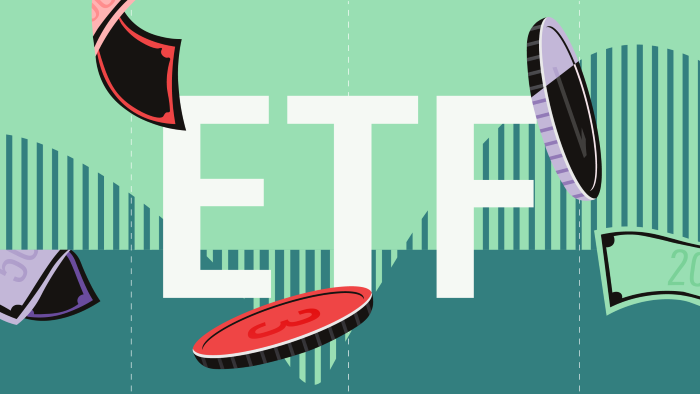Ruth Saldanha: The new Canadian bitcoin ETFs have certainly captured both the minds and the money of investors. The first one to hit the market saw inflows of over $0.5 billion in assets in just a few days. If you want to invest though, there are a few things to think about, because investing in bitcoin is essentially investing in a theme. Ben Johnson, Director of Global ETF Strategy at Morningstar, is here today to talk about this.
Ben, thank you so much for being here today.
Ben Johnson: Thanks so much for having me, Ruth. I'm excited to be here.
Saldanha: Now, cryptocurrencies were launched as an anti-fiat product. Would the creation of products like bitcoin ETFs legitimize cryptocurrencies in general and perhaps make them more mainstream than they already are?
Johnson: Well, I think, what you see with the launch of North America's first cryptocurrency ETFs is really the culmination of a process that's been in place for some time now that has mainstreamed an asset that once really, kind of, was standing on the outside, thumbing its nose at Bay Street and at Wall Street. And what you've got today is that cryptocurrency bitcoin packaged in a regulated fund that's listed on the Toronto Stock Exchange that trades during normal market hours alongside shares of railroad companies.
Saldanha: But at the end of the day, a bitcoin ETF is essentially just another thematic ETF, isn't it? So, what are some of the challenges of investing in a theme that's both so hot and so risky?
Johnson: What I would say the commonality is between this asset and just what we see with thematic funds more generally is that the narratives are really very compelling. There's a story there. There's a story that is not just being picked up in the financial press, it's being picked up in science journals. It's getting picked up in industry journals. It's getting picked up in the mainstream media. So, what investors, I think, need to be aware of is that there is a real risk that the sort of sexiness of the narrative is far ahead of what they can expect from these funds, these assets as it pertains to their investment returns. Oftentimes, by the time that we see these thematic funds come to market, and we've seen loads of them in recent years covering everything from blockchain, to marijuana, to space exploration, the time these funds are available to investors, much of the enthusiasm around these themes has been priced into the shares, priced into the assets. So, oftentimes, investors may be setting themselves up for disappointing returns from an investment perspective, certainly returns that might not match the appeal of the narratives that drew them in.
Saldanha: Now, in this particular ETF's case, the underlying asset is a specific cryptocurrency, Bitcoin. So, there have been similarities, at least what investors say, that it seems like it's investing in a single commodity or currency ETF, like say, a euro ETF or a gold ETF, for example. Would you agree with that? And what would be some of the costs associated with this kind of a product, especially for something like a cryptocurrency?
Johnson: If there's anything that investors can know for certain, it's that they're signing up for a volatile ride. Now, if there's anything else they can know for certain, it's that there are costs involved. And the costs, to your question, Ruth, are really bundled up in the management expense ratio for these products, which encapsulate the take from the product sponsor themselves and different line items that they in turn pass over to third-party service providers for purposes of custodying underlying bitcoin, ensuring the underlying bitcoin regularly audited in the fund. Again, these are regulated funds, so all of the same costs that are involved in maintaining any fund, whether it invests in the TSX 60 or gold or fixed income securities, these are all going to be present in the case of a crypto product. I think the one, in this case, that's somewhat unique is that insurance policy that the funds will take out to the benefit of shareholders in the event that there is theft of the underlying bitcoin.
Saldanha: Finally, from a long-term investor standpoint, does it make sense to consider an investment in bitcoin over something more established, like say, gold? And if so, how much of an overall portfolio should be dedicated to something as volatile as bitcoin?
Johnson: With respect to position sizing, if you look at the bitcoin market today, being about a trillion dollars in total value, in a market-weighted portfolio, taking into account the total value of all the stocks and all the bonds and all the bitcoin in the world, a market weight position in bitcoin would be less than 1% of any investor's portfolio, so a fairly tiny amount. The prospective value bitcoin could add to that portfolio is, as I mentioned before, as a potential diversifier. We've seen over its long lifespan – not very long, but longer lifespan – that bitcoin has tended to have a low degree of correlation with both equities and bonds. Now, that said, what we've seen more recently and certainly over the course of the past year or so is that bitcoin's correlation with equity markets has actually increased. So, it's not to say that going forward bitcoin will be every bit as effective a portfolio diversifier as it has been since it was first mined back, way back when. So, investors need to go in with eyes wide open, realize that this is a risky asset. It's a speculative asset. It could play a role in a portfolio, but if it has any role, it's going to be a very tiny one.
Saldanha: Thank you so much for joining us today with your perspectives, Ben.
Johnson: Thanks for having me.
Saldanha: For Morningstar, I'm Ruth Saldanha.
Passionate about Investing in New Ideas?
Explore the latest Global Thematic Fund Landscape report here


















